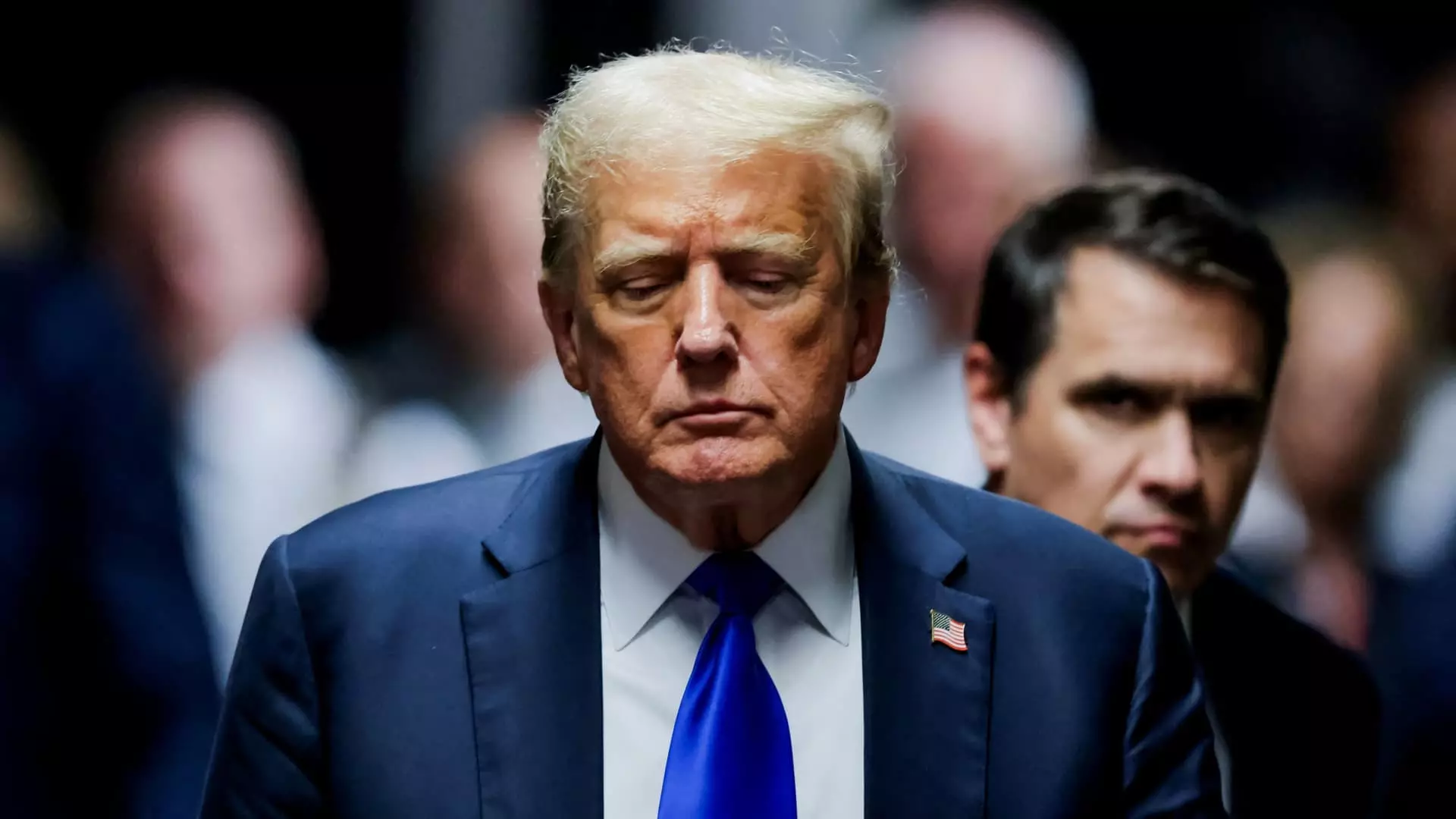In a noteworthy turn of events, President-elect Donald Trump faced a significant setback in his legal battle regarding a criminal case involving hush money payments. A New York court, presided over by Manhattan Supreme Court Judge Juan Merchan, dismissed Trump’s request to have his conviction thrown out based on claims of presidential immunity. The ruling highlights the intricate intersections between politics and the law as the former president navigates a turbulent criminal landscape.
The case against Trump stems from allegations of falsifying business records related to a $130,000 payment made to adult film actress Stormy Daniels before the 2016 presidential election. Trump’s former attorney, Michael Cohen, facilitated this payment allegedly to ensure Daniels would keep silent about an intimate encounter with Trump. Trump, however, refutes these claims, insisting that no affair took place. The underlying complexities of this case intertwine personal and political ramifications, making it a focal point of current legal discussions.
Judge Merchan’s refusal to dismiss the case was largely based on the analysis of whether the actions in question were indeed tied to Trump’s presidential duties. Trump’s legal team invoked a recent Supreme Court decision that suggested a presumption of criminal immunity for presidents regarding official acts. However, Merchan categorized the charges against Trump as distinctly personal, arguing that the prosecution’s evidence, including testimony from former White House aides, did not infringe upon executive authority.
Merchan’s ruling emphasized that even if Trump’s actions could be perceived as falling within the realm of presidential duties, the prosecution’s evidence related to personal misconduct did not pose a threat to executive functions. He further stated that any potential error concerning the admission of disputed evidence would be considered “harmless” given the overwhelming nature of the evidence presented against Trump. This ruling reiterates a crucial aspect of the legal system: the importance of distinguishing between personal misconduct and official duties, even in a complex environment where the two often blur.
As of now, Trump stands convicted on 34 felony counts of falsifying business records, with the looming question of sentencing remaining unresolved. The Manhattan District Attorney’s Office has hinted at potentially delaying the sentencing process until after Trump’s term as president concludes, which would allow him to fulfill his elected duties without the immediate burden of legal repercussions. Trump’s attorney, Todd Blanche, has requested that sentencing should only occur after all avenues for appeal have been exhausted, indicating a keen awareness of the legal strategies that may unfold.
The political ramifications of this case cannot be underestimated; Trump’s first conviction as a former president marks a historical event, propelling debates on the accountability of public figures and the question of whether a sitting or former president can be prosecuted while holding office. The reality of Trump’s situation raises uncomfortable questions about the extent to which legal proceedings can intersect with political life, especially for someone of his stature.
Reactions and Broader Consequences
Reactions to the court’s ruling have been polarized, reflecting broader societal divisions. Trump’s spokesperson, Steven Cheung, denounced the decision as a “witch hunt,” a colloquial term often used by Trump to describe what he perceives as politically motivated legal challenges. Such language resonates with Trump’s political base, reinforcing the narrative of persecution that has become a cornerstone of his public persona.
On a broader scale, this case serves as a cautionary tale regarding the entanglement of politics and law in contemporary America. It underscores a tumultuous time in the socio-political landscape, where the consequences of individual actions can have far-reaching effects on governance and public trust. As the case unfolds, it raises fundamental questions about the extent of accountability and the legal responsibilities assumed by those in power.
The ongoing legal challenges faced by Donald Trump represent a watershed moment in American judicial history, especially concerning the precedent it sets for the intersection of law and political office. As legal battles continue and the narrative remains alive in public discourse, the implications of this case will undoubtedly shape the future of American politics. For Trump, navigating this tumultuous terrain will demand an adept blend of legal strategy and political maneuvering in the face of unprecedented scrutiny.

